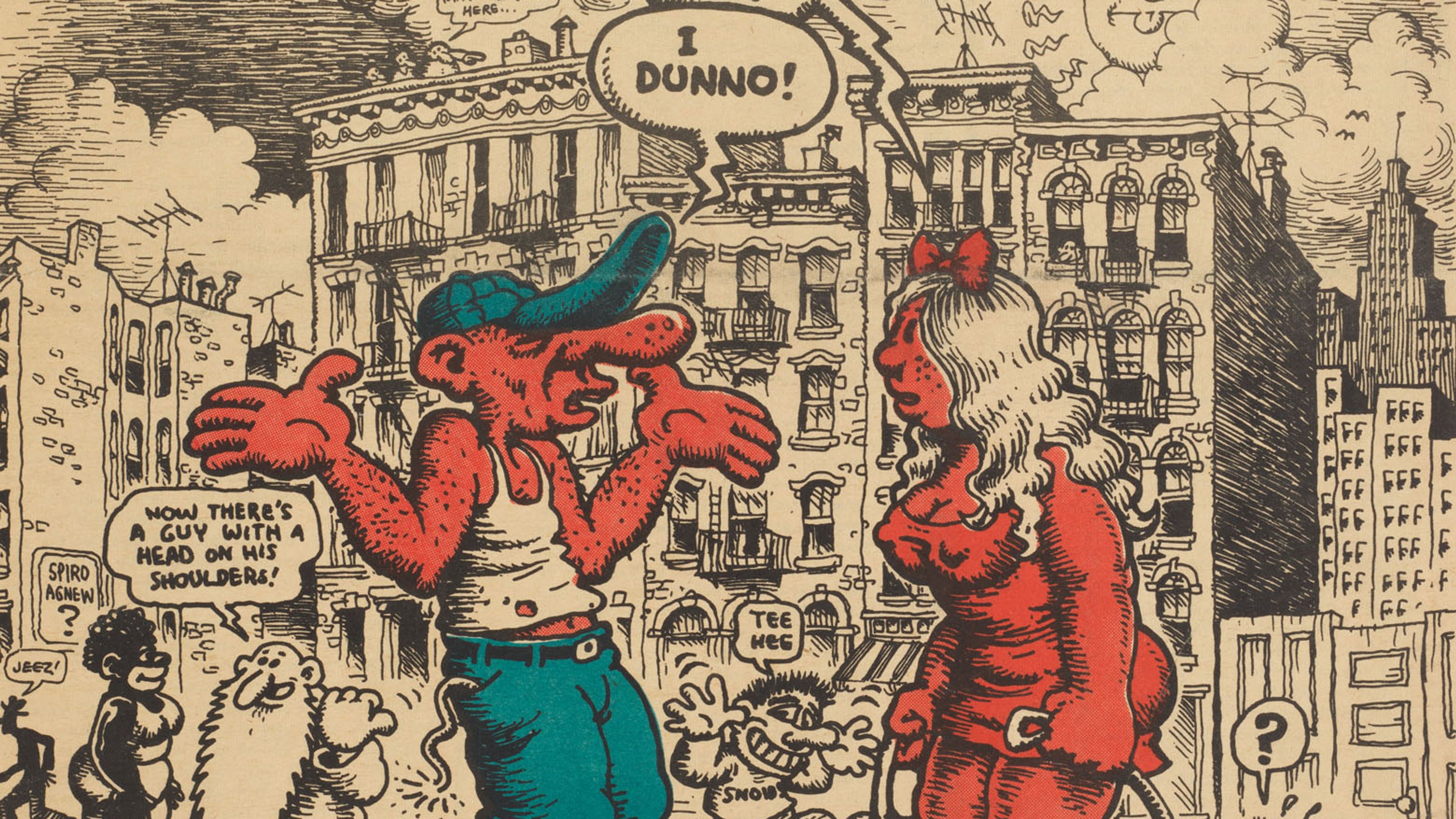Robert Crumb is the undisputed godfather of alternative comics. His work has appeared in museums across the world, from the Venice Biennale to New York's Museum of Modern Art; he was the subject of Terry Zwigoff's acclaimed documentary Crumb (Gene Siskel's favorite film of 1994); his drawings are so coveted by collectors that a sale of some sketchbooks in the early 1990s bought him a centuries-old chateau in southeast France. The legendary art critic Robert Hughes has favorably compared his portrayals of the human grotesque to Pieter Bruegel and William Hogarth, declaring Crumb "the one and only genius the 1960s underground produced in visual art, either in America or Europe." Nearly every milestone on the long road comics have crawled from derided trash to treasured American art form was inspired either directly or secondhand by Crumb's choices and achievements. With his first issue of Zap in 1968, Crumb singlehandedly invented a format and sensibility, under the broad label of "underground comix," that permanently changed how printed cartoon stories are perceived. Along the way, it opened the form to social criticism, history, outrageous satire, and the full range of deeply personal human experience, including the both lightly and darkly sexual. Crumb's occasional collaborator Harvey Pekar, one of the major innovators of quotidian comic autobiography, says his partner demonstrated that "comics were as good an art form as any that existed. You could write any kind of story in comics. It was as versatile a medium as film or television." Similar praise from other creators for Crumb's mind-blowing importance to them could go on for pages; anyone making noncorporate, nongenre, self-expressive comics occupies a space he created. But events in the comics world last year served notice that the social-justice re-evaluation currently sweeping comedy, film, and literature has arrived at the doorstep of free-thinking comics. In September, at the Small Press Expo's Ignatz Awards ceremony in Bethesda, Maryland, Crumb's successor generation of alt artists let the 75-year-old have it with both barrels. While presenting the award for Outstanding Artist, the cartoonist Ben Passmore, who is black, asserted that "comics is changing…and it's not an accident." He lamented the continued industry presence of "creeps" and "apologists," then called out the godfather by name: "Shit's not going to change on its own. You gotta keep on being annoying about it.…A while ago someone like R. Crumb would be 'Outstanding.'" The room erupted with both "ooohs" and booing. "A little while ago there'd be no boos," Passmore responded. "I wouldn't be up here, real talk, and yo—fuck that dude." The crowd burst into applause.

R. Crumb, Untitled (East Village Other, Oct. 4th '68, vol. 3 No.43), 1968